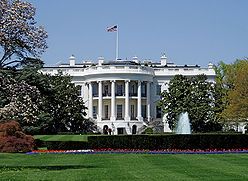“Punting the Pundits” is an Open Thread. It is a selection of editorials and opinions from around the news medium and the internet blogs. The intent is to provide a forum for your reactions and opinions, not just to the opinions presented, but to what ever you find important.
Thanks to ek hornbeck, click on the link and you can access all the past “Punting the Pundits”.
Follow us on Twitter @StarsHollowGzt
New York Times Editorial Board: A Trickle-Down Effect of Citizens United
It’s no secret that candidates for president, governor and Congress have benefited from the torrent of money that has flooded elections since the Supreme Court’s 2010 Citizens United decision, which allowed unlimited spending by corporations and labor unions that are supposedly independent of a candidate’s campaign.
But while the sums that flow to state and local elections may not be as vast, each dollar has much more influence. And thanks to lax or nonexistent regulation, a race can be dominated by a single spender, with his own policy agenda, essentially working in collaboration with a campaign. That is the conclusion of a report issued Monday (pdf) by the Brennan Center for Justice: “Independent” spending on state and local elections has predictably skyrocketed since Citizens United, and coordination laws in many states are either too vague or weakly enforced. [..]
The report urges a much more aggressive approach to identifying and rooting out coordination at the state and local level. Among other things, it calls for broader definitions of coordination, longer periods before campaign staffers may join outside groups, and stronger enforcement of existing laws.
Connecticut, Minnesota and Vermont have recently taken steps along these lines. More should follow their lead. As long as the Supreme Court and Congress fail to address the distorting influence of money on elections, state and local action is the best remaining defense.
Joseph E. Stiglitz: The Age of Vulnerability
Two new studies show, once again, the magnitude of the inequality problem plaguing the United States. The first, the U.S. Census Bureau’s annual income and poverty report, shows that, despite the economy’s supposed recovery from the Great Recession, ordinary Americans’ incomes continue to stagnate. Median household income, adjusted for inflation, remains below its level a quarter century ago.
It used to be thought that America’s greatest strength was not its military power, but an economic system that was the envy of the world. But why would others seek to emulate an economic model by which a large proportion — even a majority — of the population has seen their income stagnate while incomes at the top have soared? [..]
In the U.S., upward mobility is more myth than reality, whereas downward mobility and vulnerability is a widely shared experience. This is partly because of America’s healthcare system, which still leaves poor Americans in a precarious position, despite President Barack Obama’s reforms.
Those at the bottom are only a short step away from bankruptcy with all that that entails. Illness, divorce, or the loss of a job often is enough to push them over the brink. [..]
The report by the International Commission on the Measurement of Economic Performance and Social Progress (which I chaired) emphasized that GDP is not a good measure of how well an economy is performing. The U.S. Census and UNDP reports remind us of the importance of this insight. Too much has already been sacrificed on the altar of GDP fetishism.
Regardless of how fast GDP grows, an economic system that fails to deliver gains for most of its citizens, and in which a rising share of the population faces increasing insecurity, is, in a fundamental sense, a failed economic system. And policies, like austerity, that increase insecurity and lead to lower incomes and standards of living for large proportions of the population are, in a fundamental sense, flawed policies.
Dean Baker:
The Deficit Is Down and the Deficit Hawks Are Furious
Last week the Congressional Budget Office reported that the deficit for the 2014 fiscal year that just ended was $460 billion, considerably lower than they had previously projected. This puts the deficit at 2.7 percent of GDP. At that level, the size of the debt relative to the economy is actually falling.
Not only is the deficit down sharply from its levels of 2009 and 2010, when it was near 10 percent of GDP, it is below the levels that even the deficit hawks had targeted back in those years. In other words, even if we had followed the lead of deficit crusaders like Erskine Bowles and Alan Simpson, the deficit would be no lower today.
If anyone thought this would make the deficit hawks happy, they are badly mistaken. They are furious.
Jeff Madrick: How Laissez-Faire Economics Led to Inequality and Recession
Remember in 2009 when everyone was dodging blame for the financial crisis? Depending on who you asked, it was the bankers, the federal regulators, Fannie Mae, fraudster mortgage companies, the ratings agencies and the sub-prime borrowers themselves. The favorite claim of excuse makers was that no single group was to blame — it was a cluster-f*** as one journalist friend put it.
If everyone did it, no one could be held accountable. But it wasn’t true. Bankers and regulators were the major creators of the crisis, for their neglect and single-minded self-aggrandizement that often involved bending the rules.
But let me single out one group that avoided blame and deserved plenty of it: mainstream economists. The deeply held ideas of the nation’s most elite economists from the Right and the Left were direct causes of the crisis, justifying perverse behavior on Wall Street and in Washington, and careless and ignorant behavior at the Federal Open Market Committee of the nation’s central bank, the Federal Reserve.
These ideas did a lot of harm along the way — in particular, they were responsible for slower than necessary economic growth that resulted in higher unemployment and inequality.
Robert Creamer: Republican Right Embraces Its Long, Hypocritical Tradition of Pandering to Fear
They’re back. Like the fourth sequel to a bad horror movie, the Republican Right has once again chosen to embrace its long ignoble, hypocritical tradition of pandering to — and stoking — fear.
As the election nears, their ads are filled with images of ISIL terrorists, Ebola viruses, Secret Service breaches, and “porous” borders through which knife-wielding Muslim extremists are surely infiltrating every corner of our society.
It’s not just disgusting. It’s also hypocritical. The fact is that the Republicans have an abysmal record when it comes to defending the security of ordinary Americans. [..]
But this is nothing new. Right-wing demagogues have perfected their techniques for appealing to our darkest fears for decades. It’s embedded in their DNA.
John Nichols: How Can You Tell If US Hospitals Are Prepared for Ebola? Ask a Nurse.
With Sunday’s confirmation that an ICU nurse at a Dallas hospital that cared for a dying Ebola patient has tested positive for the deadly virus, President Obama ordered federal authorities to “take immediate additional steps to ensure hospitals and healthcare providers nationwide are prepared to follow protocols should they encounter an Ebola patient.”
That’s appropriate, as is the growing sense of urgency with regard to the level of readiness not just for the potential spread of Ebola but for other disease outbreaks.
This is not a time to panic. It is a time to get things right. [..]
Research is essential, but so too is basic preparedness.
The best way to determine if our hospitals are ready to respond is by asking a nurse. Or, to be more precise, nurses.
The answer, unfortunately, is that our hospitals are not up to speed.





 The flashy rail projects are the very HSR projects to build bullet trains serving urban areas with millions of people.
The flashy rail projects are the very HSR projects to build bullet trains serving urban areas with millions of people.
Recent Comments